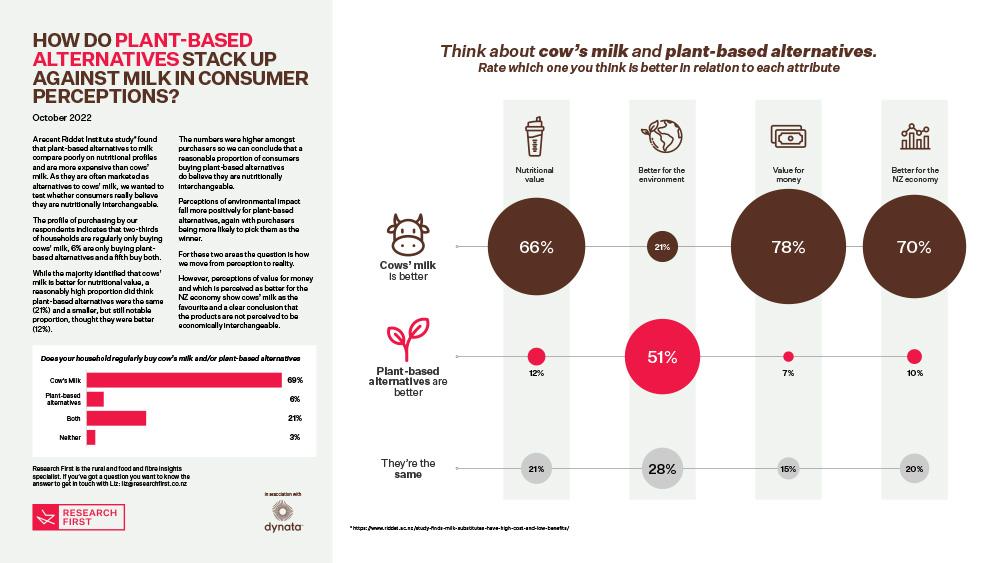How do Plant-based alternatives stack up against milk in consumer perceptions?
A recent Riddet Institute study* found that Plant-based alternatives to milk compare poorly on nutritional profiles and are more expensive than cows’ milk. As they are often marketed as alternatives to cows’ milk, we wanted to test whether consumers really believe they are nutritionally interchangeable.
The profile of purchasing by our respondents indicates that two-thirds of households are regularly only buying cows’ milk, 6% are only buying alternatives and a fifth buy both.
While the majority identified that cows’ milk is better for nutritional value, a reasonably high proportion did think plant-based alternatives were the same (21%) and a smaller, but still notable proportion, thought they were better (12%).
The numbers were higher amongst purchasers so we can conclude that a reasonable proportion of consumers buying alternatives do believe they are nutritionally interchangeable.
Perceptions of environmental impact fall more positively for plant-based alternatives, again with purchasers being more likely to pick them as the winner.
For these two areas the question is how we move from perception to reality.
However, perceptions of value for money and which is perceived as better for the NZ economy show cows’ milk as the favourite and a clear conclusion that the products are not perceived to be economically interchangeable.
*https://www.riddet.ac.nz/study-finds-milk-substitutes-have-high-cost-and-low-benefits/
Research First is the rural and food and fibre insights specialist.
If you’ve got a question you want to know the answer to get in touch with Liz: liz@researchfirst.co.nz



